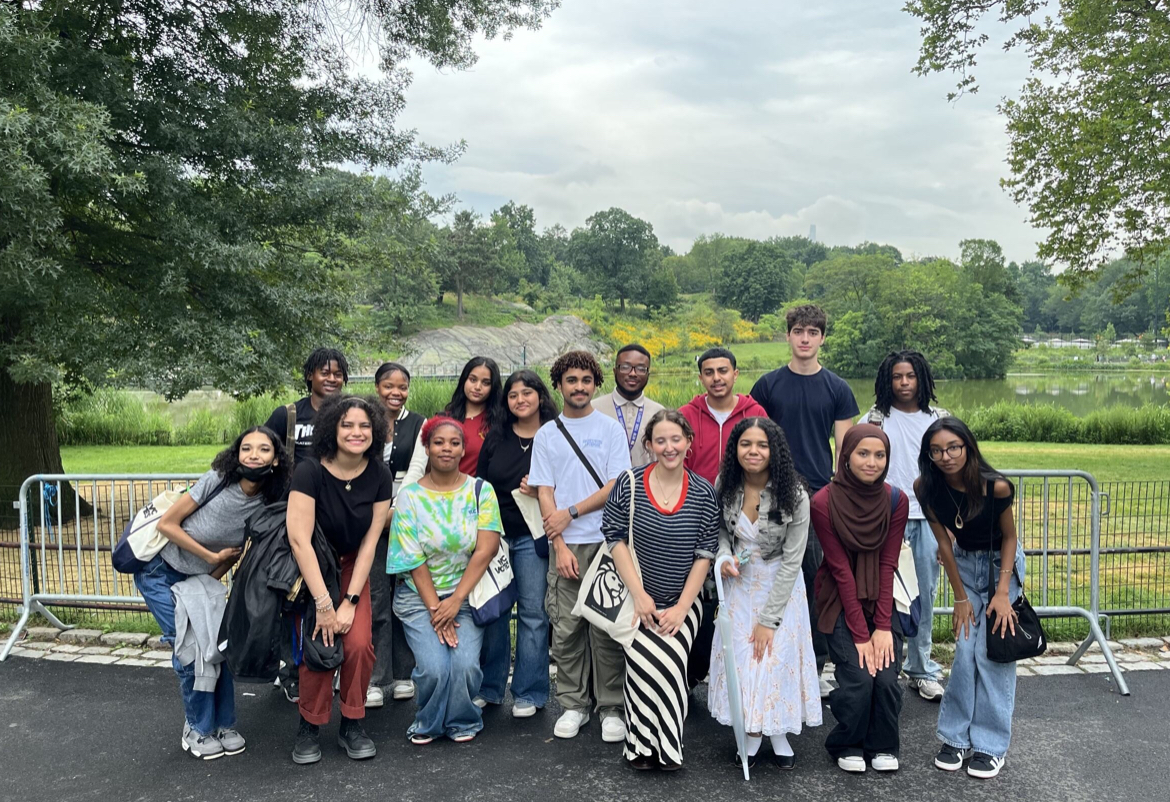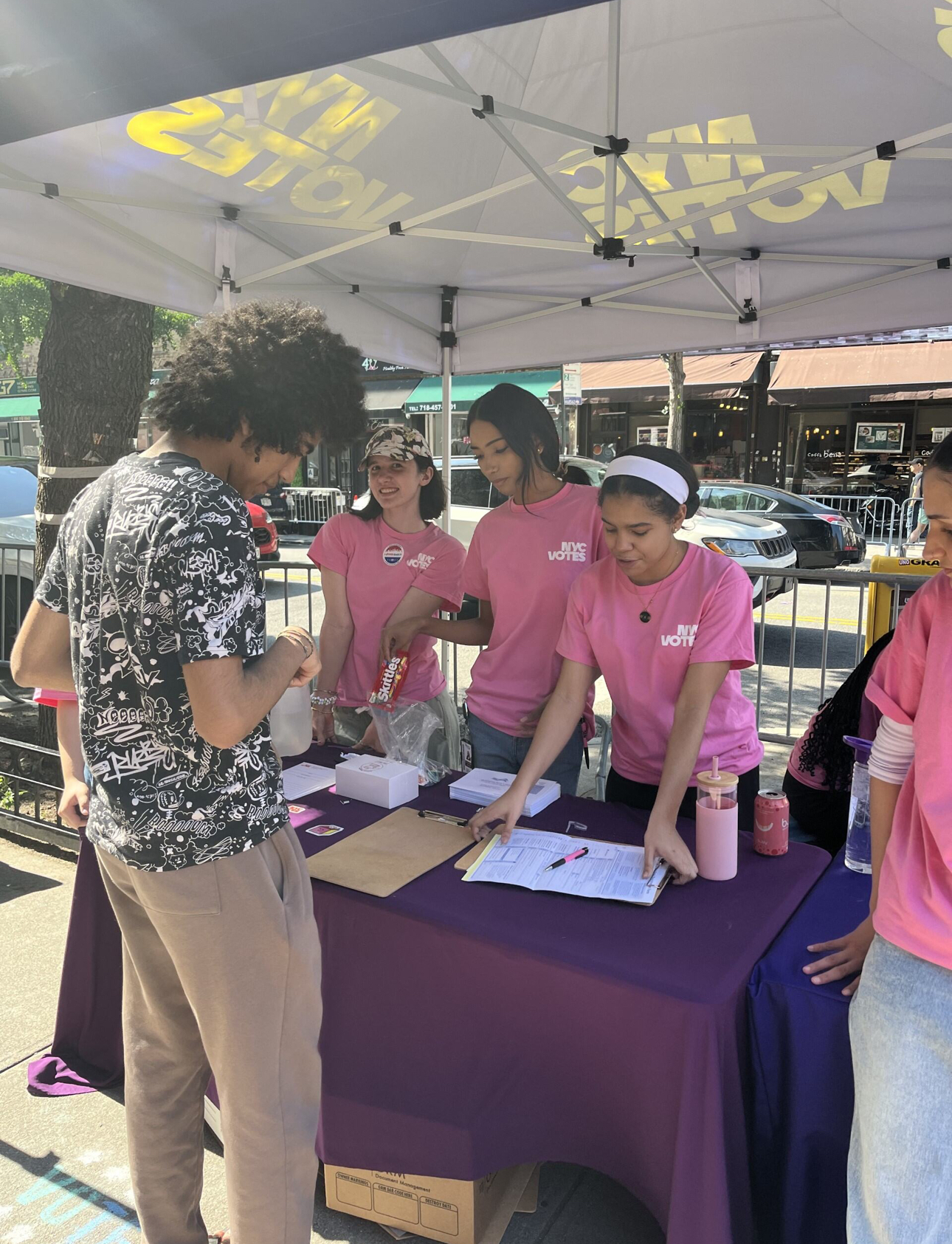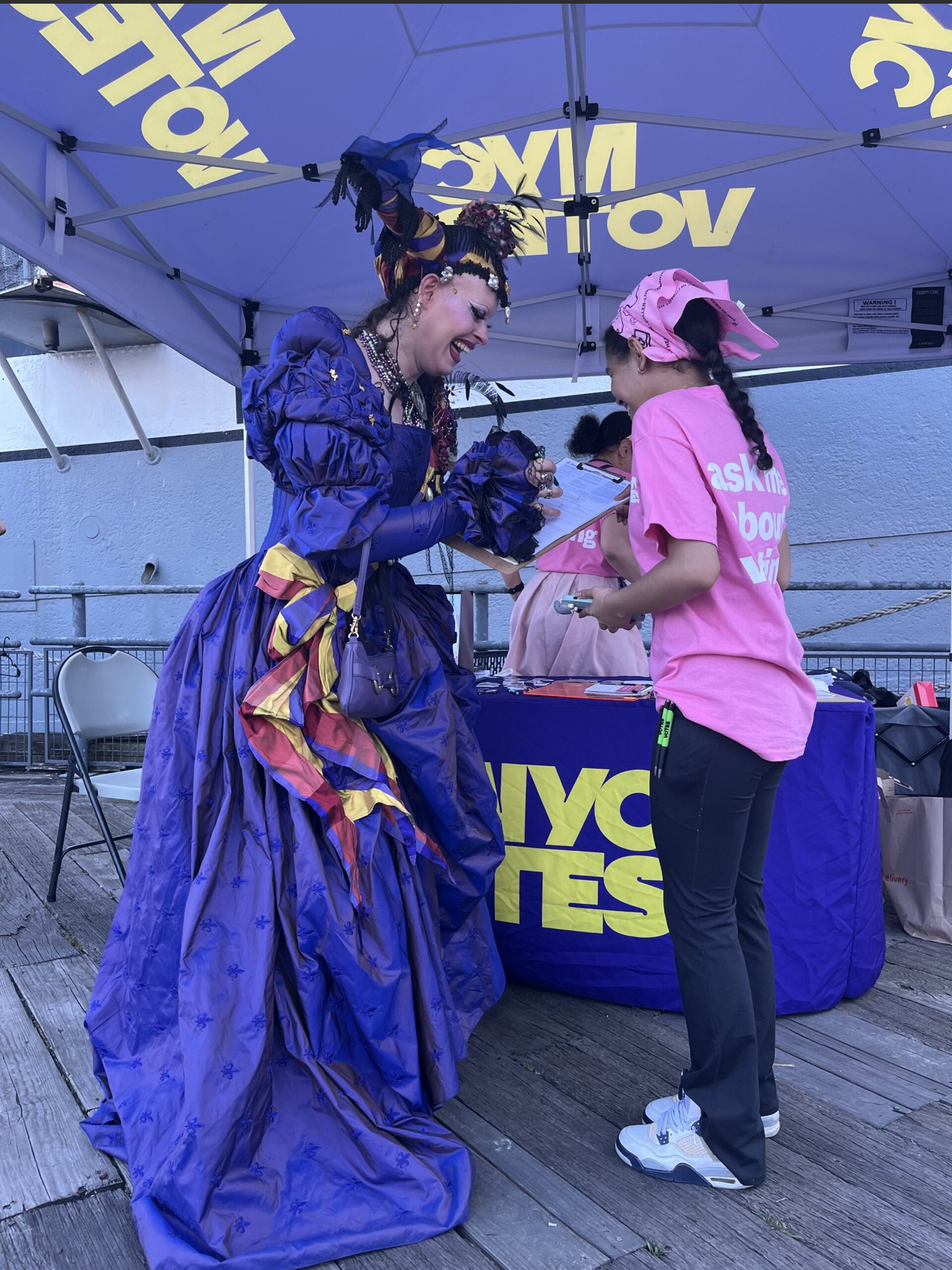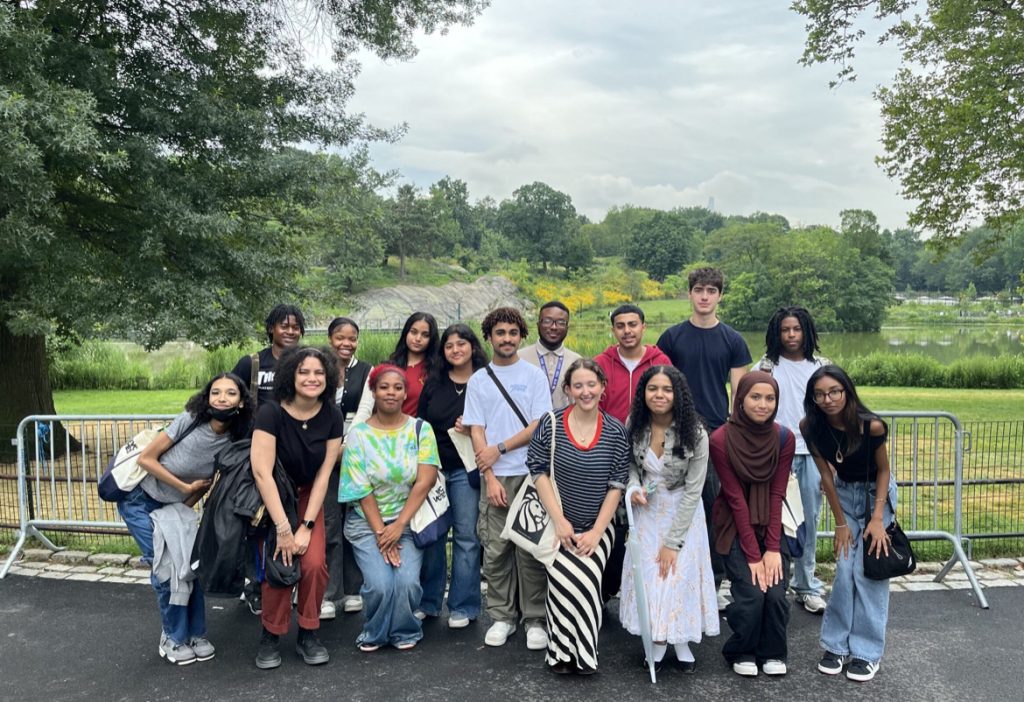
MOHAMED FARGHALY
mfarghaly@queensledger.com
Seventeen New York City high school students are spending their summer as part of the 2025 NYC Votes Youth Ambassadors program, learning how to mobilize their peers around civic engagement and the electoral process as the city heads into another busy election year.
The program, now in its sixth year, is run by the NYC Campaign Finance Board (CFB), a nonpartisan, independent city agency that oversees local campaign spending and administers the city’s public matching funds program. Under its NYC Votes initiative, the ambassadors receive training in voter outreach, community organizing, and local history while hosting events to help increase youth voter participation across all five boroughs.
“This is really an initiative for New York City High School students who want to get more involved in community organizing, and specifically from the lens of youth voter turnout and getting their communities engaged in the voting process,” said Olivia Brady, the program’s manager. “Not only do they learn about voting, how to vote, how to get registered, what it means to be pre-registered. We also really take a holistic approach, where we learn from community organizers across the city. We look at local history, and we also take field trips every Thursday. We just came back from the Transit Museum.”
Brady said youth voter turnout is consistently the lowest of any age group across New York City, regardless of the type of election. She noted that the South Bronx and East New York in Brooklyn show some of the weakest participation rates among young voters, while communities such as Corona, Jackson Heights, and Flushing in Queens, and Sunset Park and Borough Park in Brooklyn, also face barriers tied to language access. “Voters under 30 have consistently the lowest turnout out of any age group,” Brady said. “However, the South Bronx, the entire South Bronx, and also East New York and Brooklyn, have extremely low youth voter turnout… we also have a few other priority communities that you know are also kind of primarily focused on reaching voters who speak a language other than English.”
The ambassadors — all under the age of 17 and collectively speaking seven languages — were chosen from a competitive pool of more than 500 applicants. This year, 16 students were selected, with priority given to neighborhoods with historically low youth voter turnout, such as the South Bronx and East New York.
“This is our sixth cohort. I should also emphasize that this is a paid program as a part of our commitment to equity and really ensuring that youth who are most impacted by the issue of low voter turnout can participate,” Brady said.
For many students, the experience has been their first introduction to hands-on civic engagement.
“My name is Isa Hernandez. I’m from Queens. I’m 18, and I’m also a high schooler. I applied to this program in May, and have been having so much fun supporting my community ever since,” said one of the new ambassadors.
Another, Gulshan Aachol, said: “Hi. My name is Gulshan, I’m also from Queens. I live in Astoria. I’m a high school student. I’ve also been having so much fun in the ambassador’s program.”
Both students said the program has broadened their perspective on politics and activism.

“I really wanted to take that opportunity, because I’m just recently getting into civic engagement, and I feel like I am interested in it, but I’m not educated in politics and just so much stuff like that,” Hernandez said. “And like, being a part of the Youth Ambassador Program has given me so many opportunities to learn so many.”
Aachol added: “Honestly, I didn’t think I was gonna get it just because of how un-educated I was. But I think that just goes to show how many like different people were taking in, and how many different communities were trying to engage because like, this is the first step.”
Ambassadors spend their weeks visiting museums, conducting research, and hosting civic events, including canvassing and text-banking. They also split into committees — research, marketing, and press — to examine voter behavior and community perspectives.
“In my committee, basically what we’re doing is we are researching or conducting interviews with people about the matching funds program and their opinions on it, and how that kind of shifts their opinions on voting,” Aachol said. “And like we’re just analyzing these things, and we’re just giving key takeaways on our interviews.”
The program is designed not only to train future voters, but to address systemic barriers to participation in underrepresented communities.
“I will see like we are the next generation at the end of the day,” Aachol said. “Even outside of school, people don’t think about the things going around in their communities, and they just don’t have enough, like engagement about it. And just like you have to be interested in voting, and you have to learn about the things in your community, not just voting, but you have to know about the things going around you, because we are the next generation, the way we shape our world is really important.”
Hernandez agreed: “I think it’s important, because the data shows that we are people under 29 — 18 to 29 — are the least in voter turnout, and if we move that number up, it could definitely make a difference. And I will say, also, I would like to piggyback what Gulshan said, we are the next generation, and sooner or later, we will have to worry about policy, even if we think we won’t have to worry about it.”
Some of the ambassadors are already exercising their right to vote.

“Yes, I actually participated in my first election. I voted in the primary,” Hernandez said. “That was my first voter experience, and I am excited to continue using my voice. And yeah, I’m definitely gonna become a certified voter.”
For Aachol, the program has sparked excitement about casting her first ballot: “I actually just pre-registered to vote. Many people don’t know, but you can pre register to vote at the age of 16 or 17, as long as you’ll be 18 by the time of the next election. So I am really excited. You can, like, pre-register on our website nyc.org.”
Brady said that’s exactly the kind of change the program is designed to inspire.
“It’s really important for young people to have access to this information so that they can take that information and feel empowered to themselves participate,” she said. “But also, you know, to help get their communities tapped in.”



